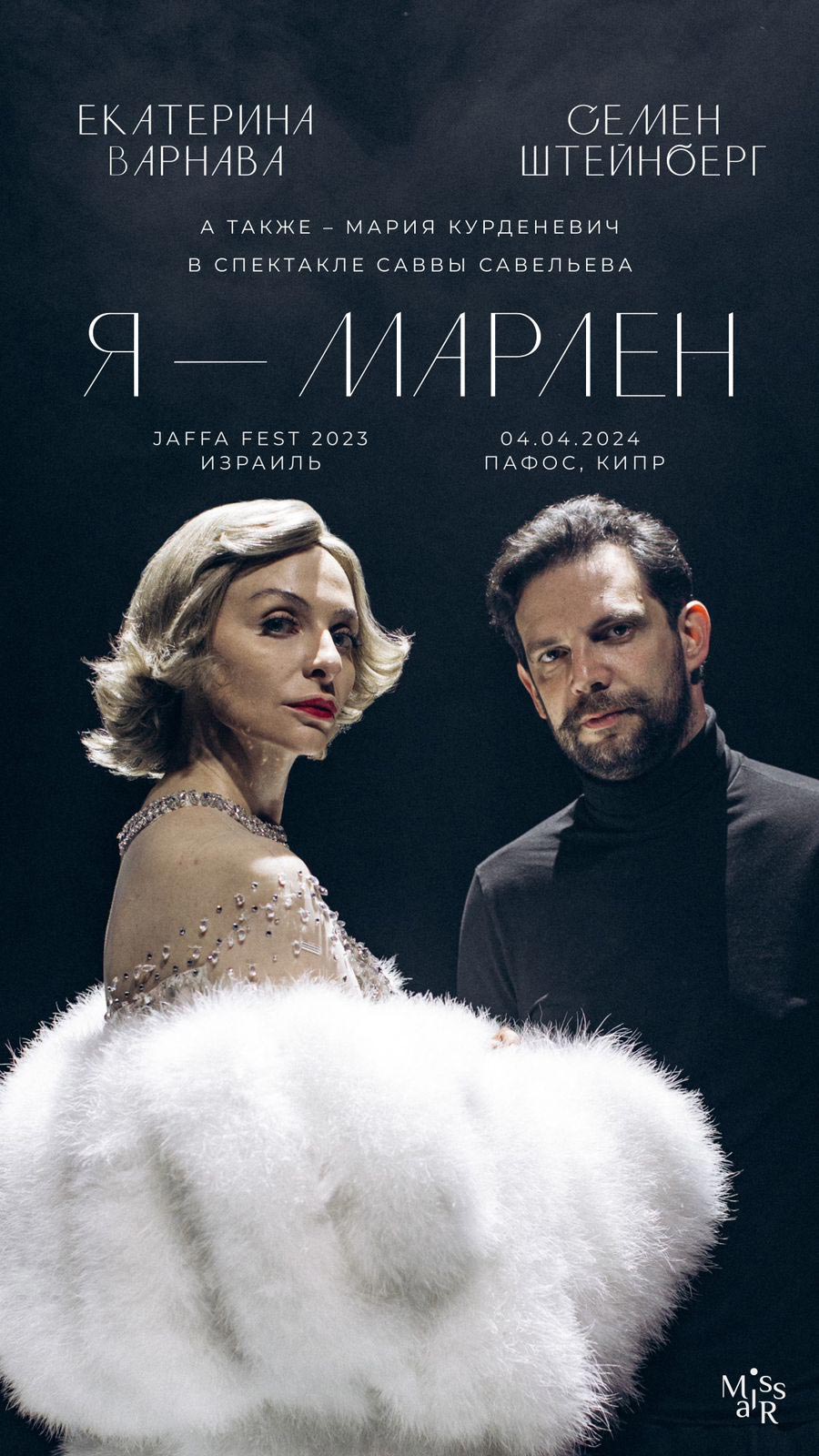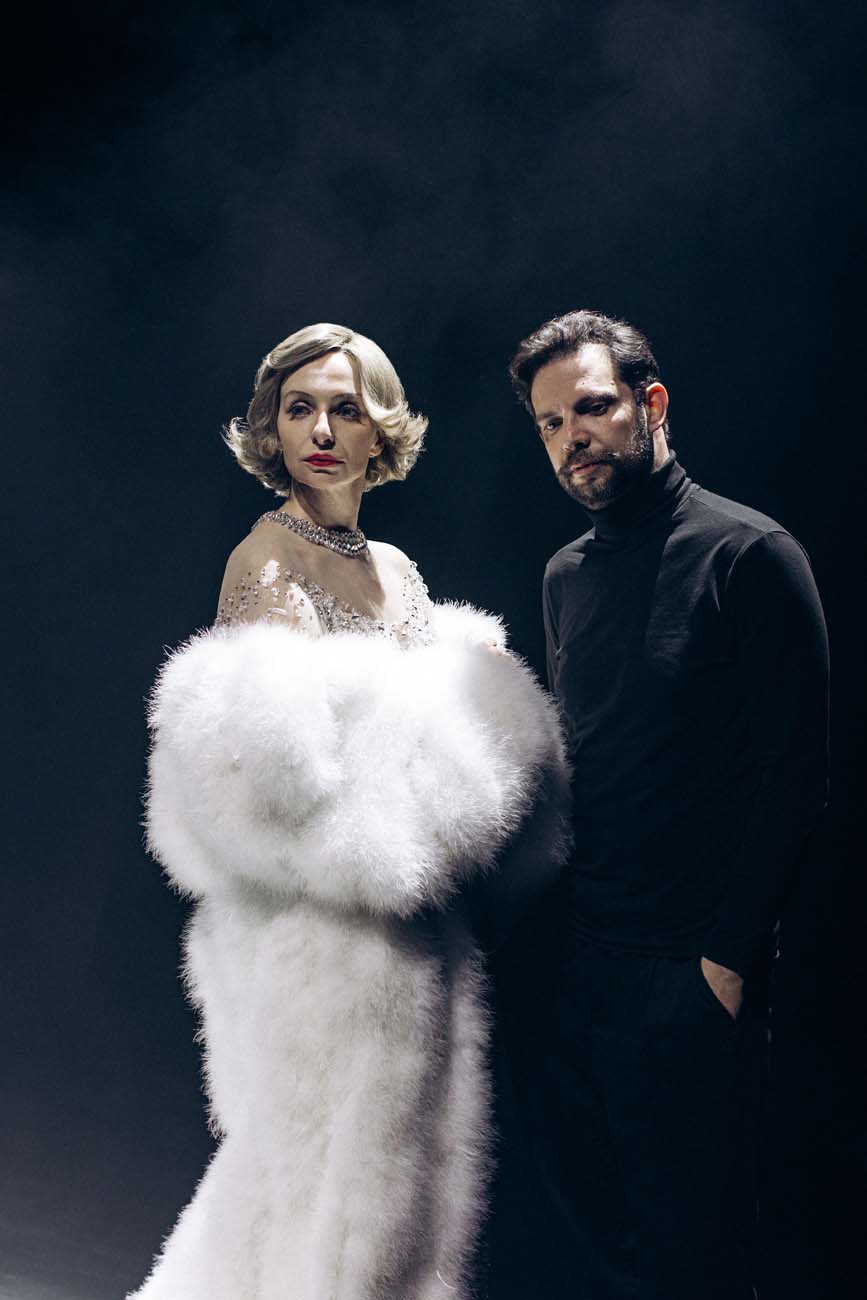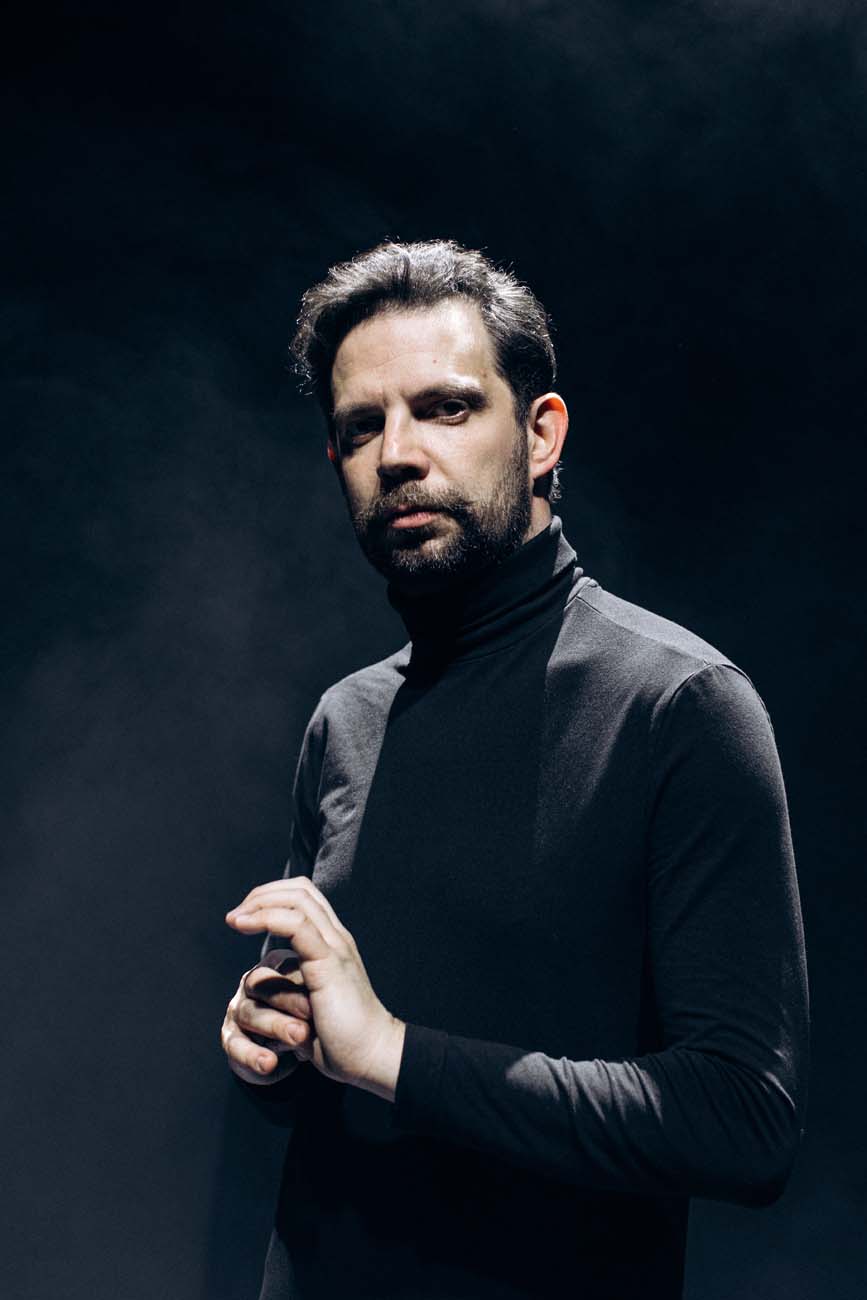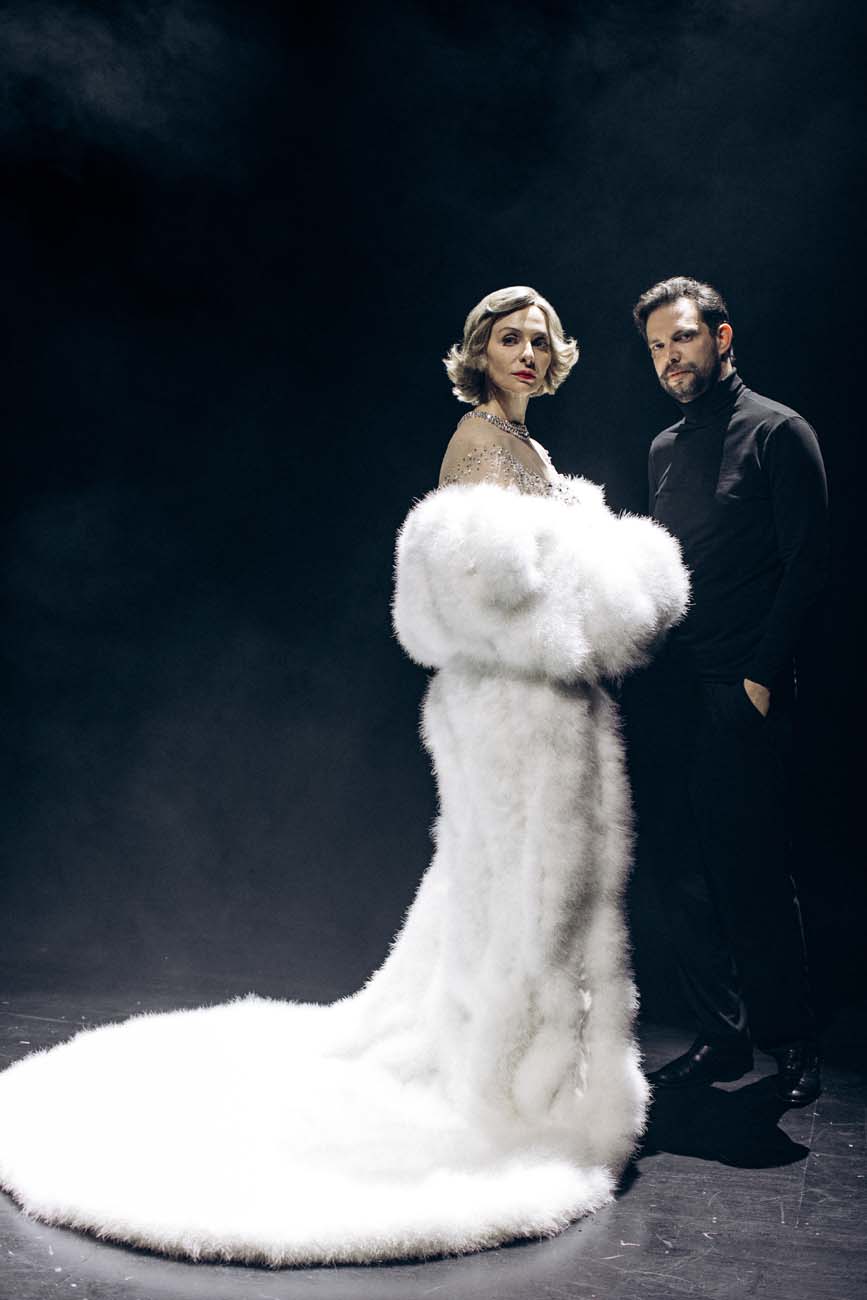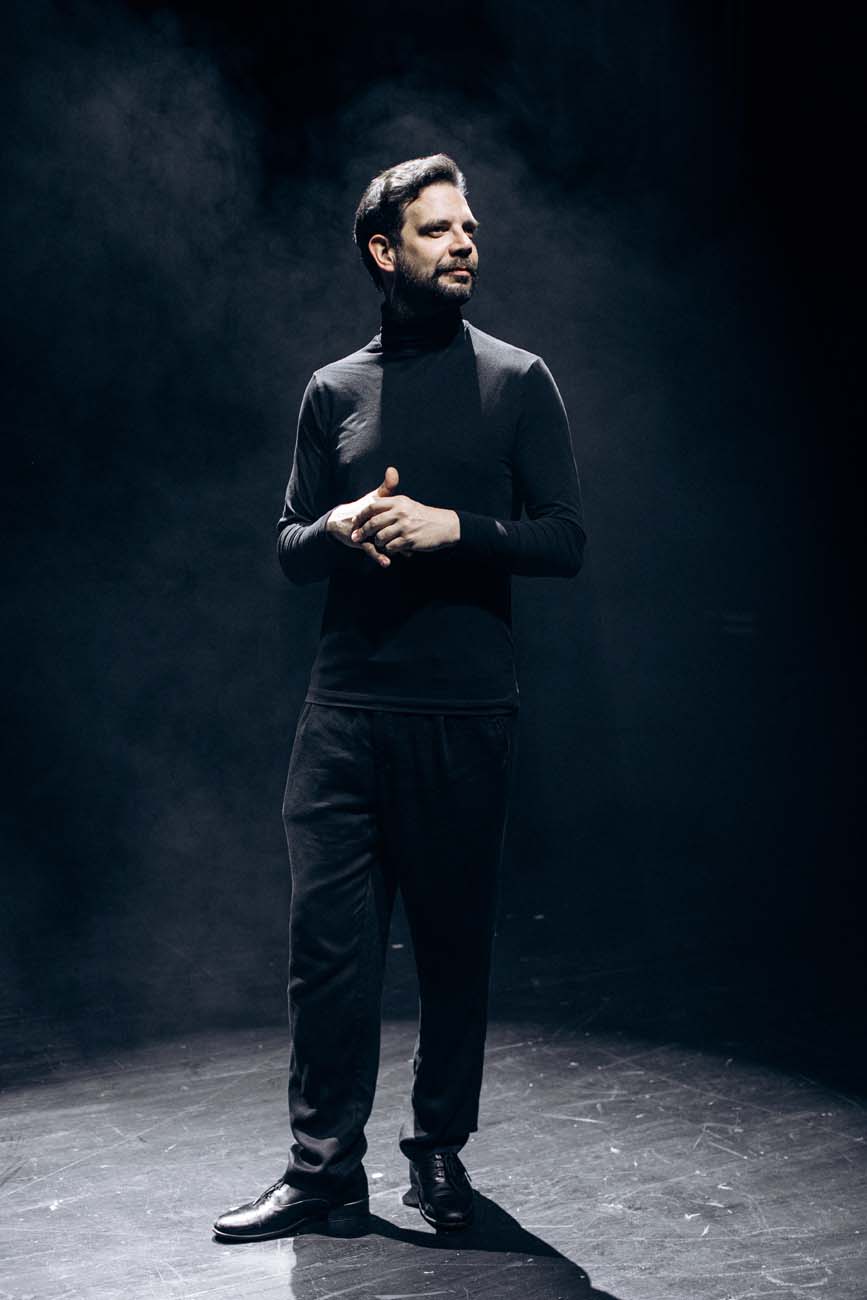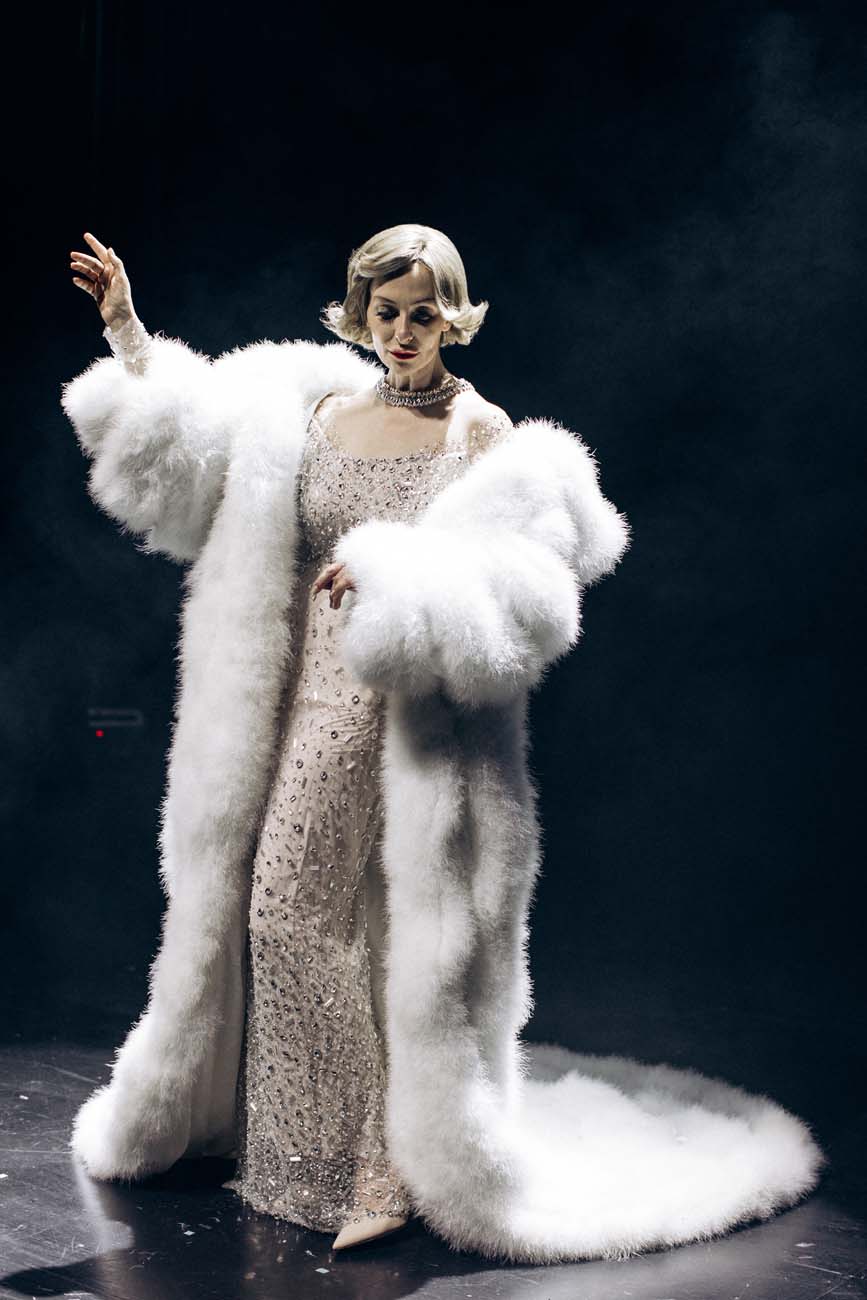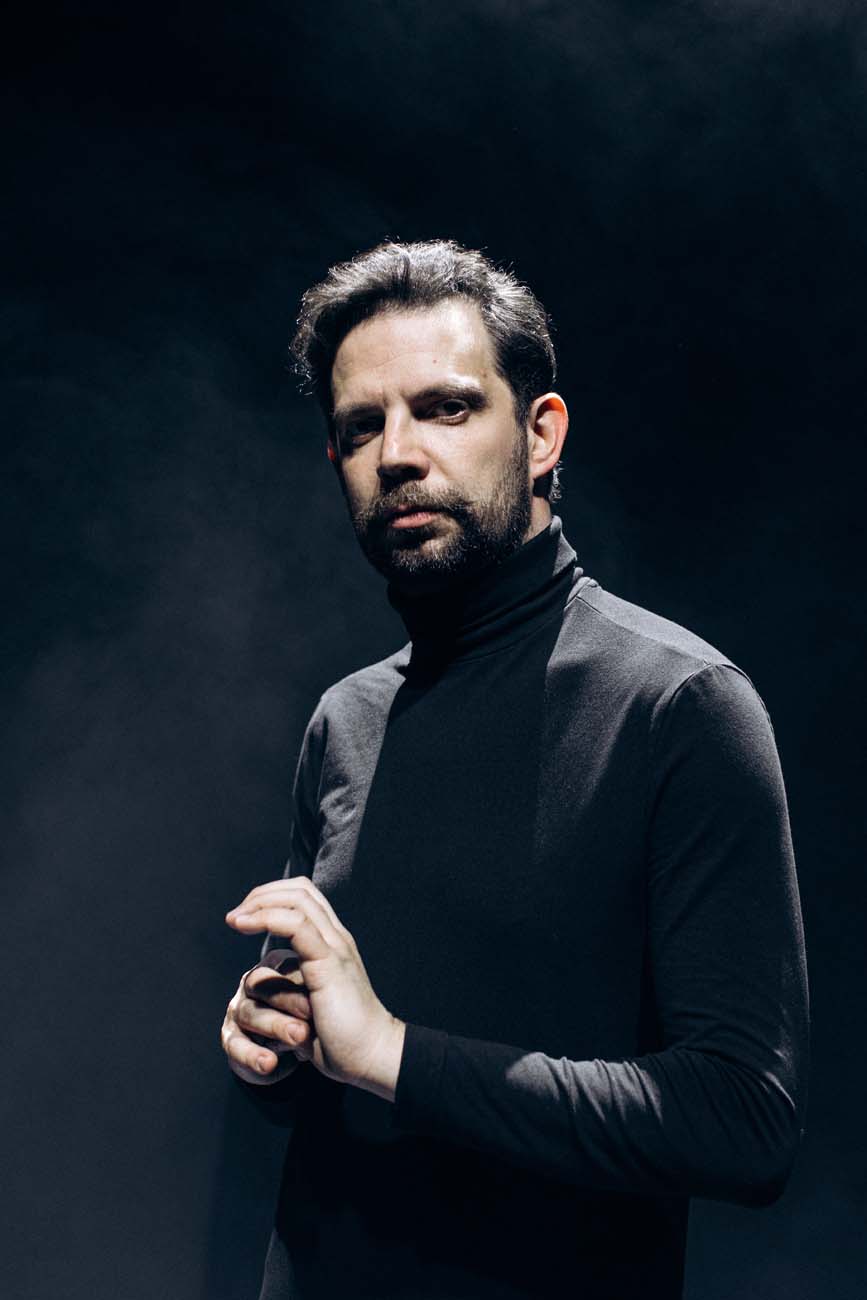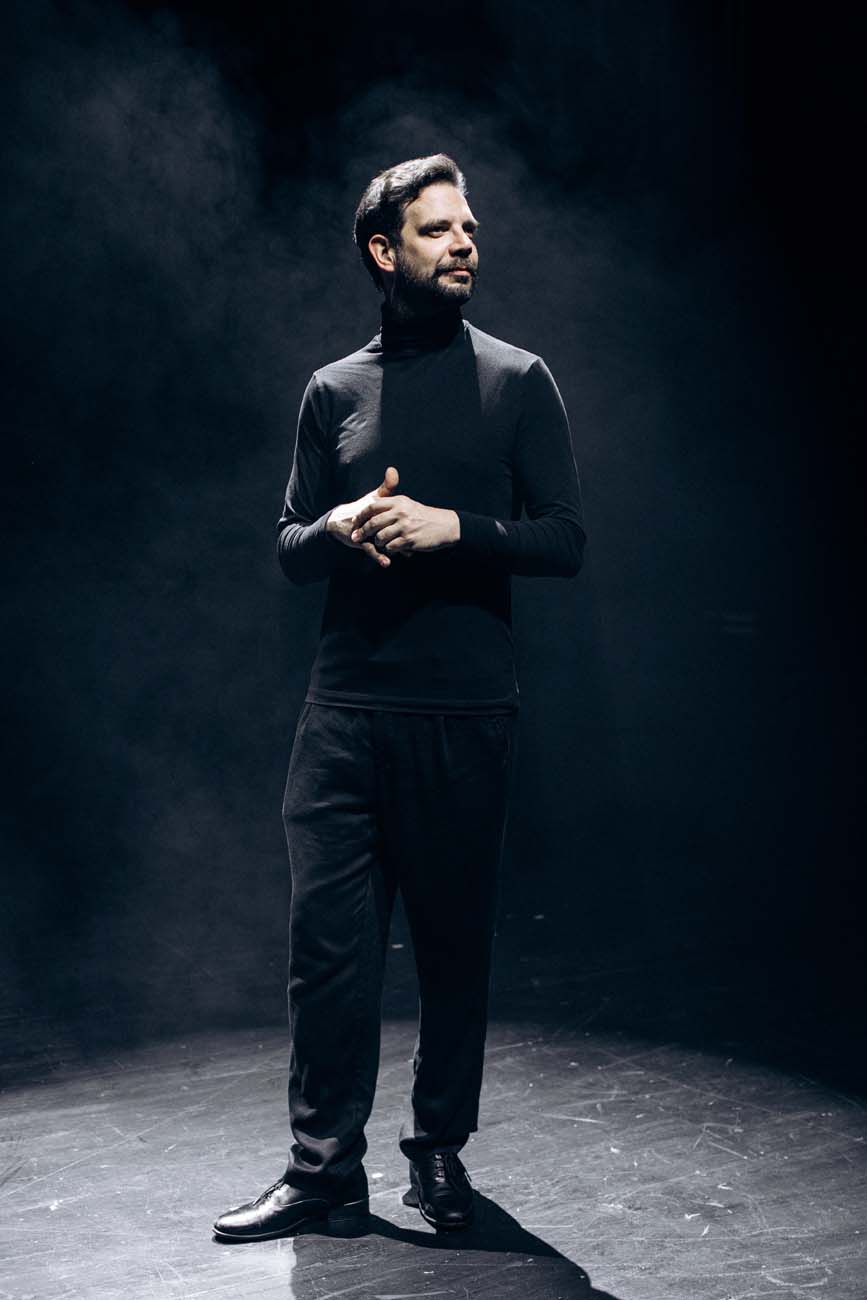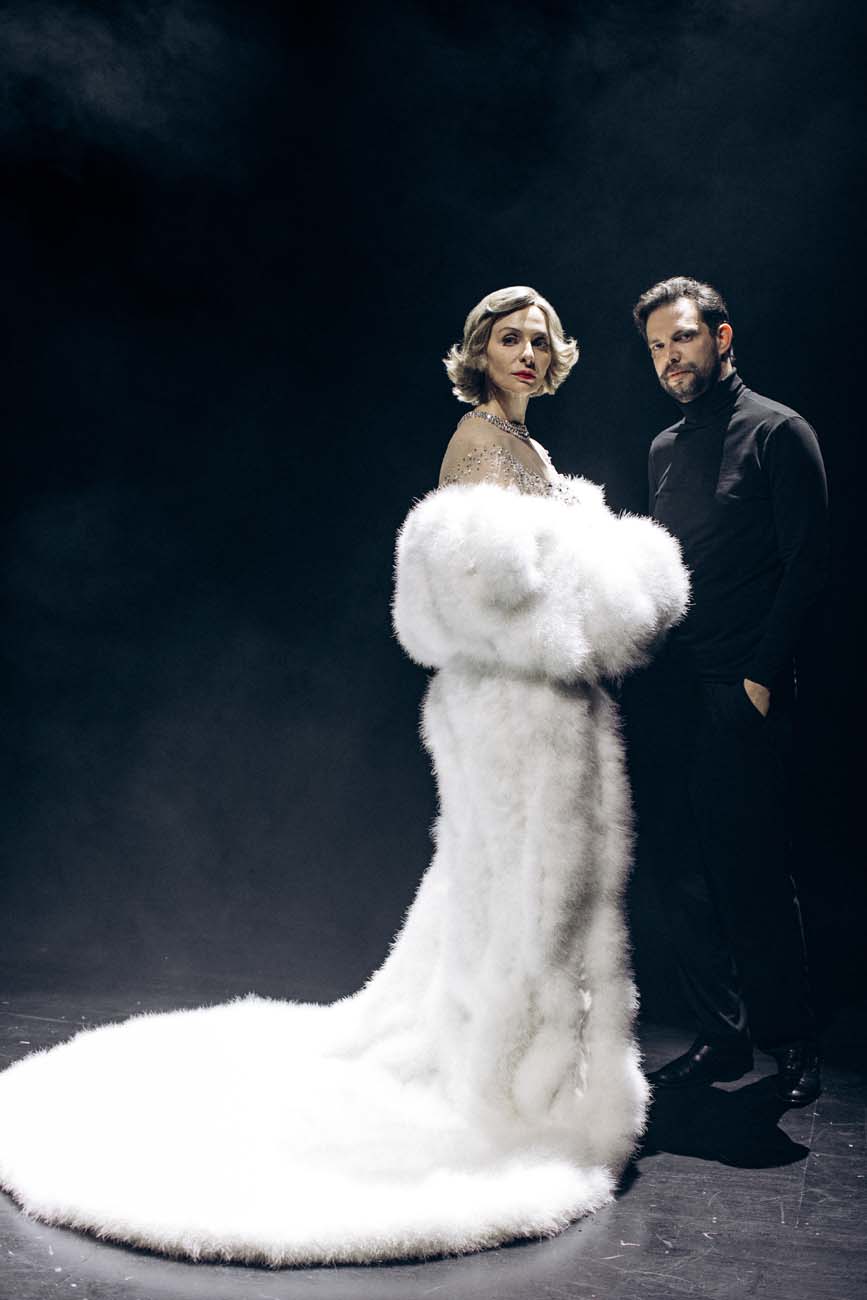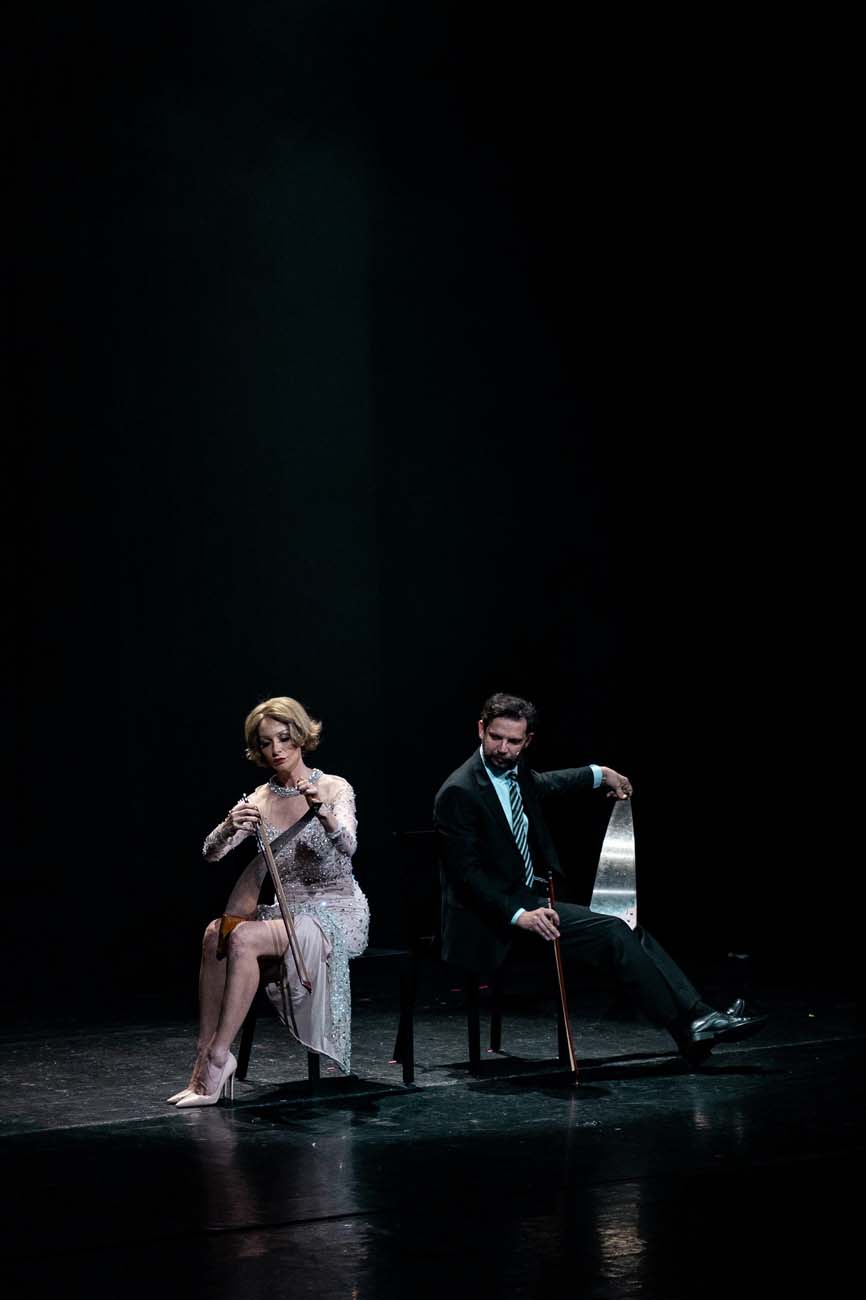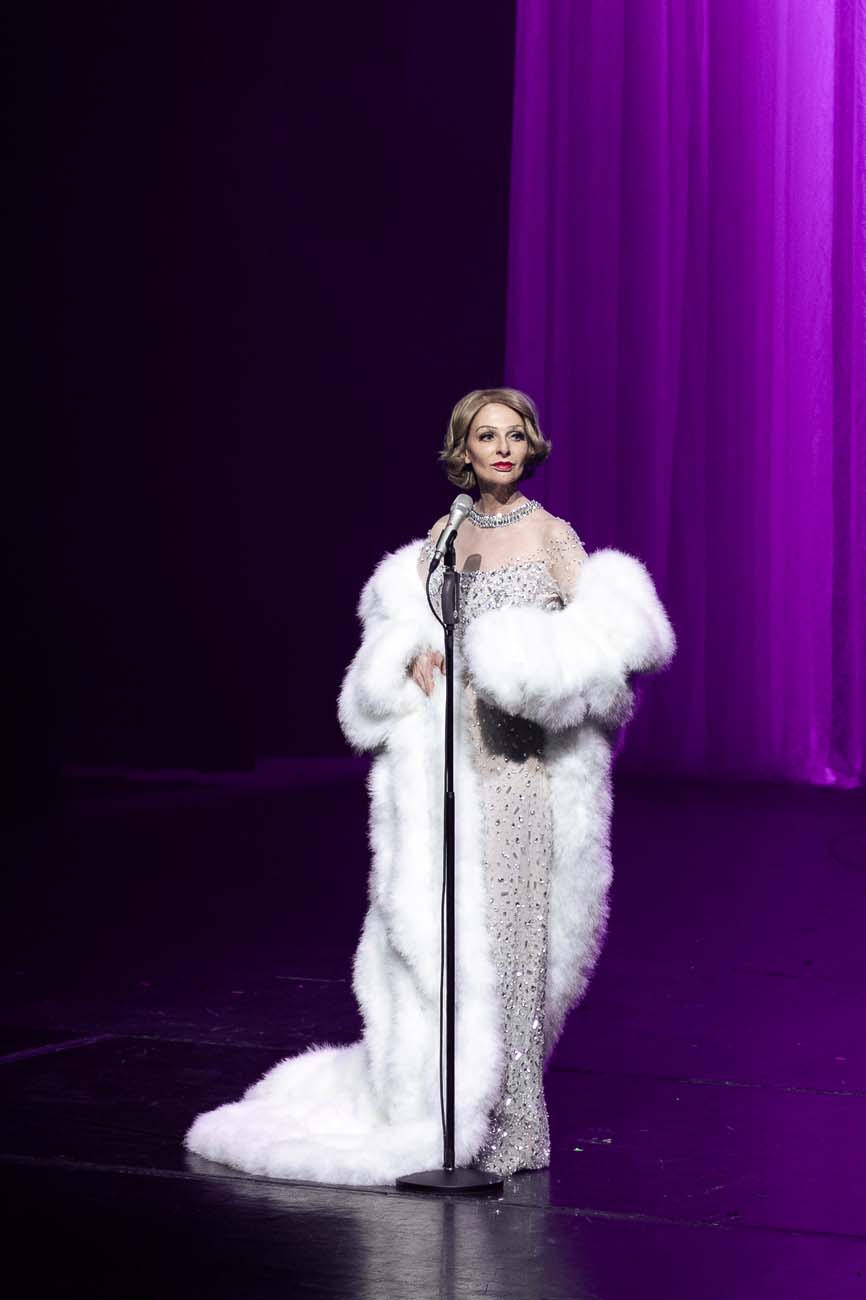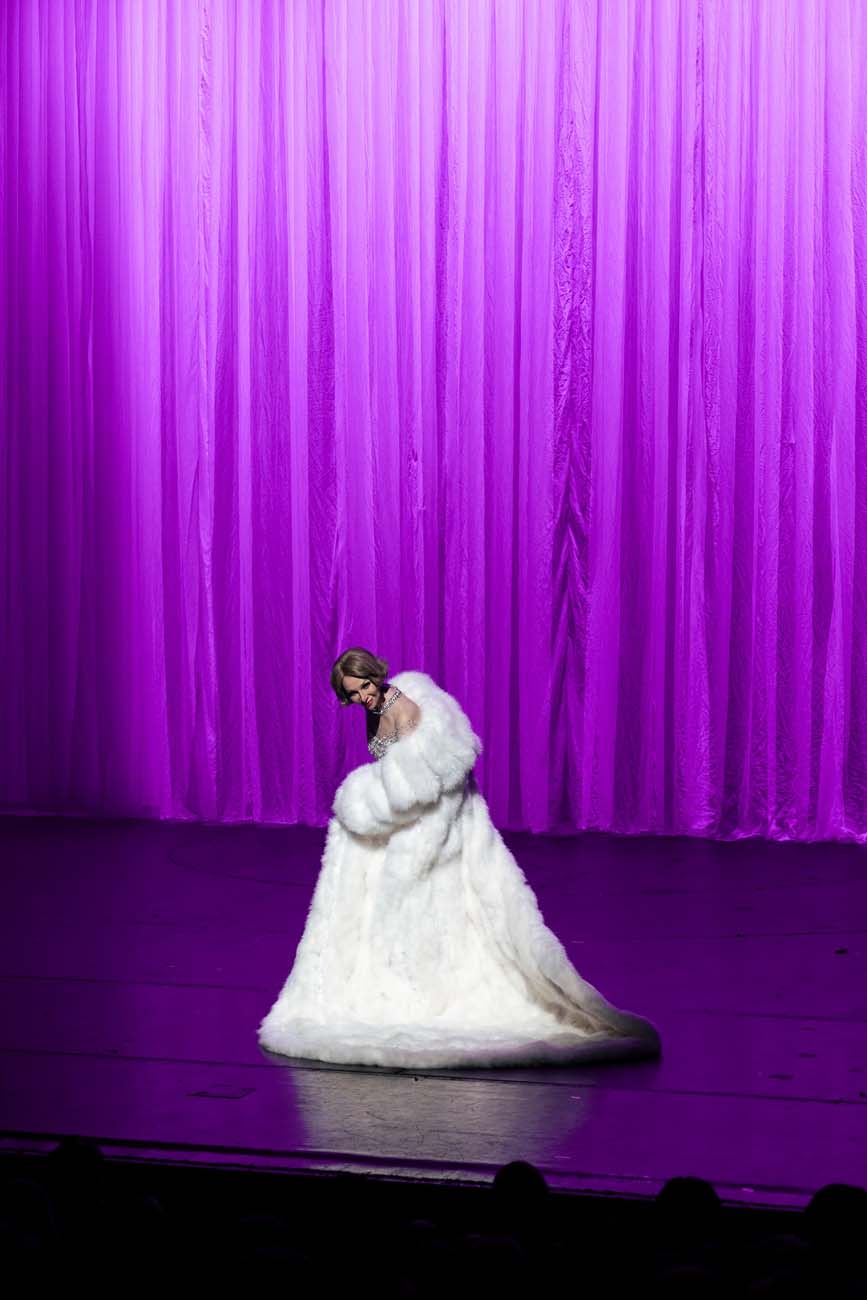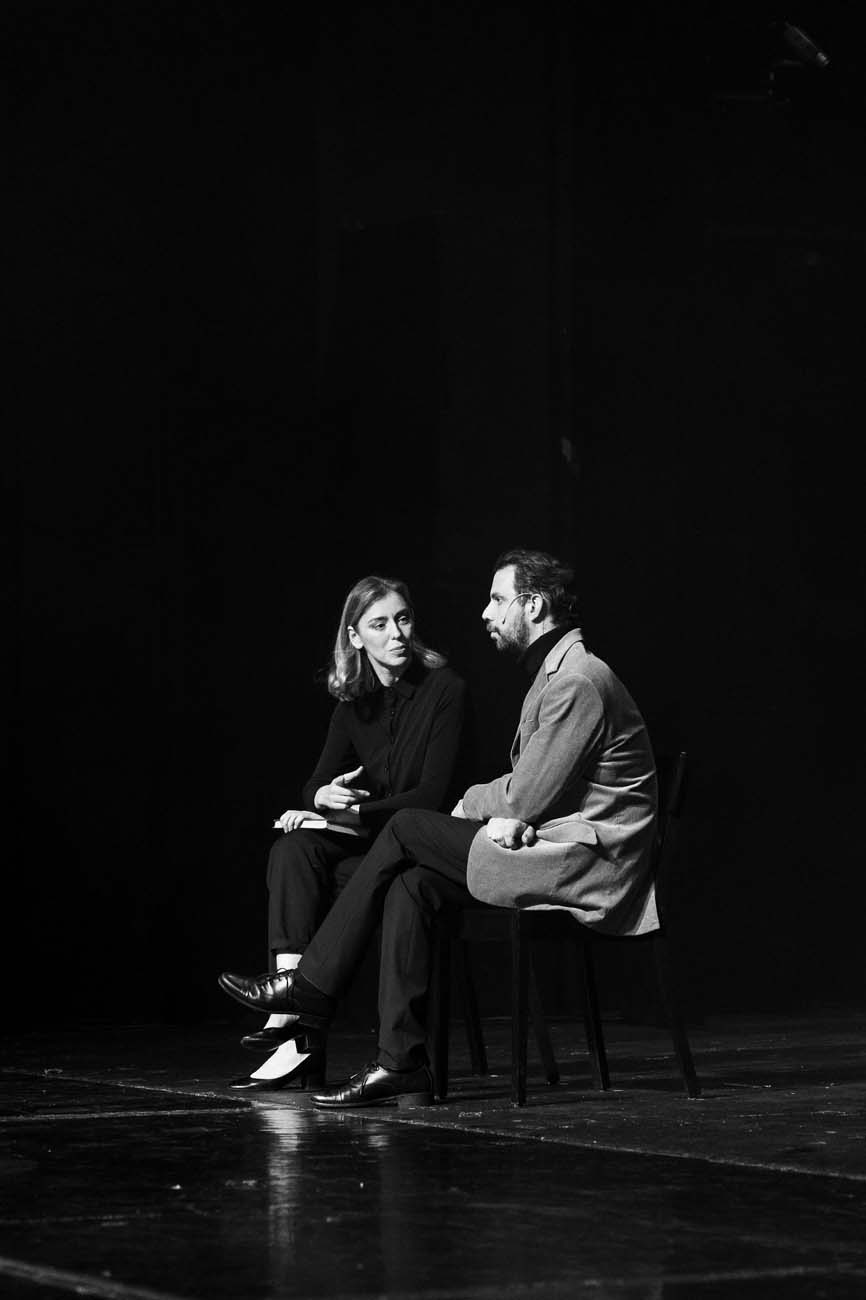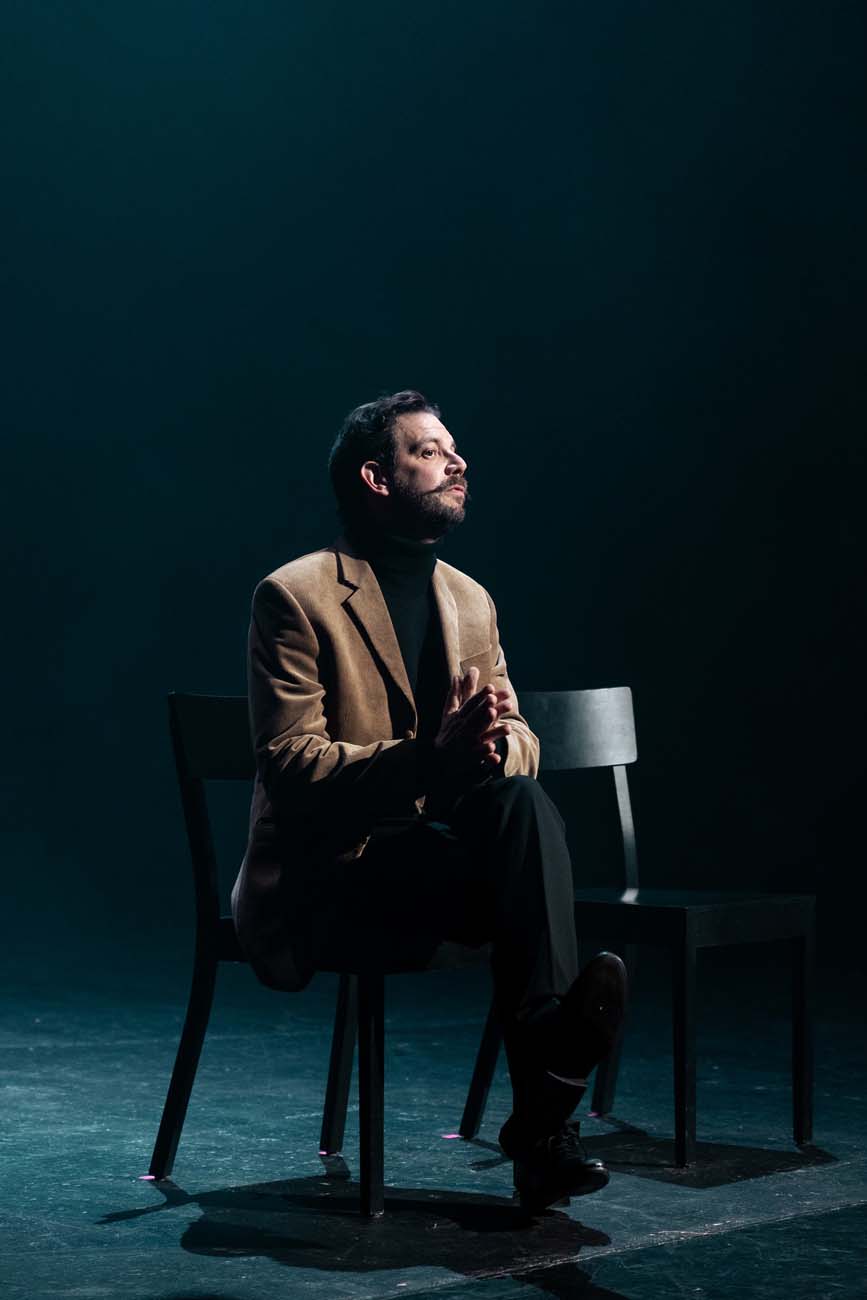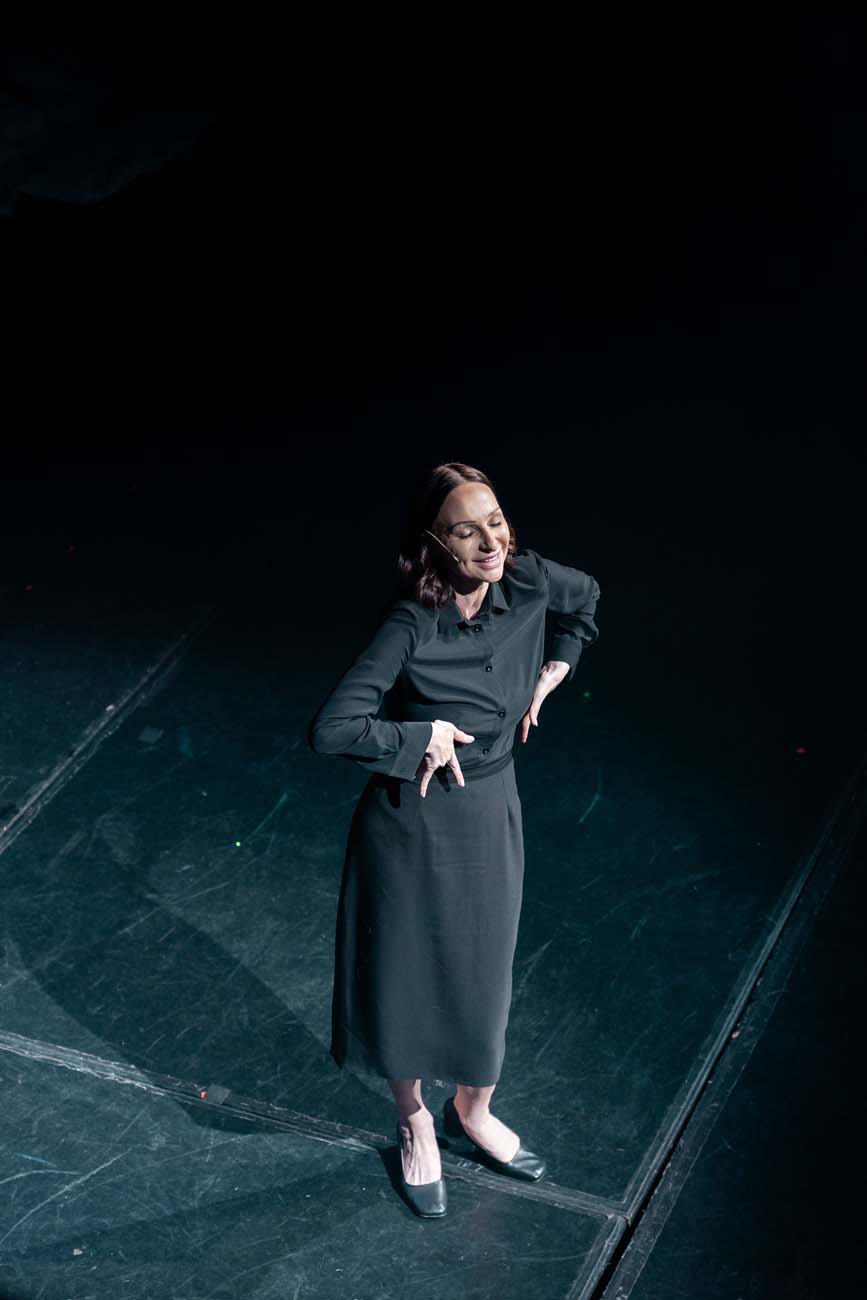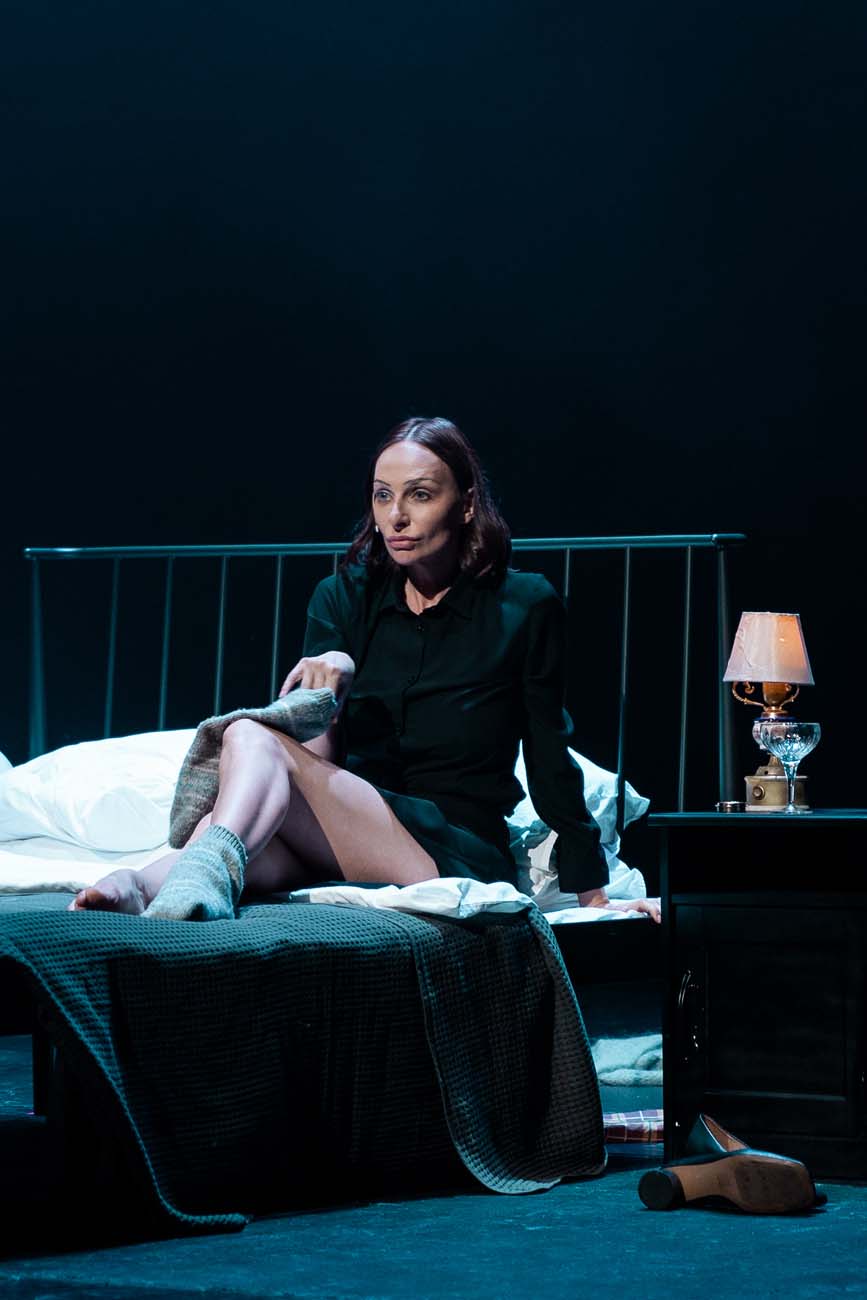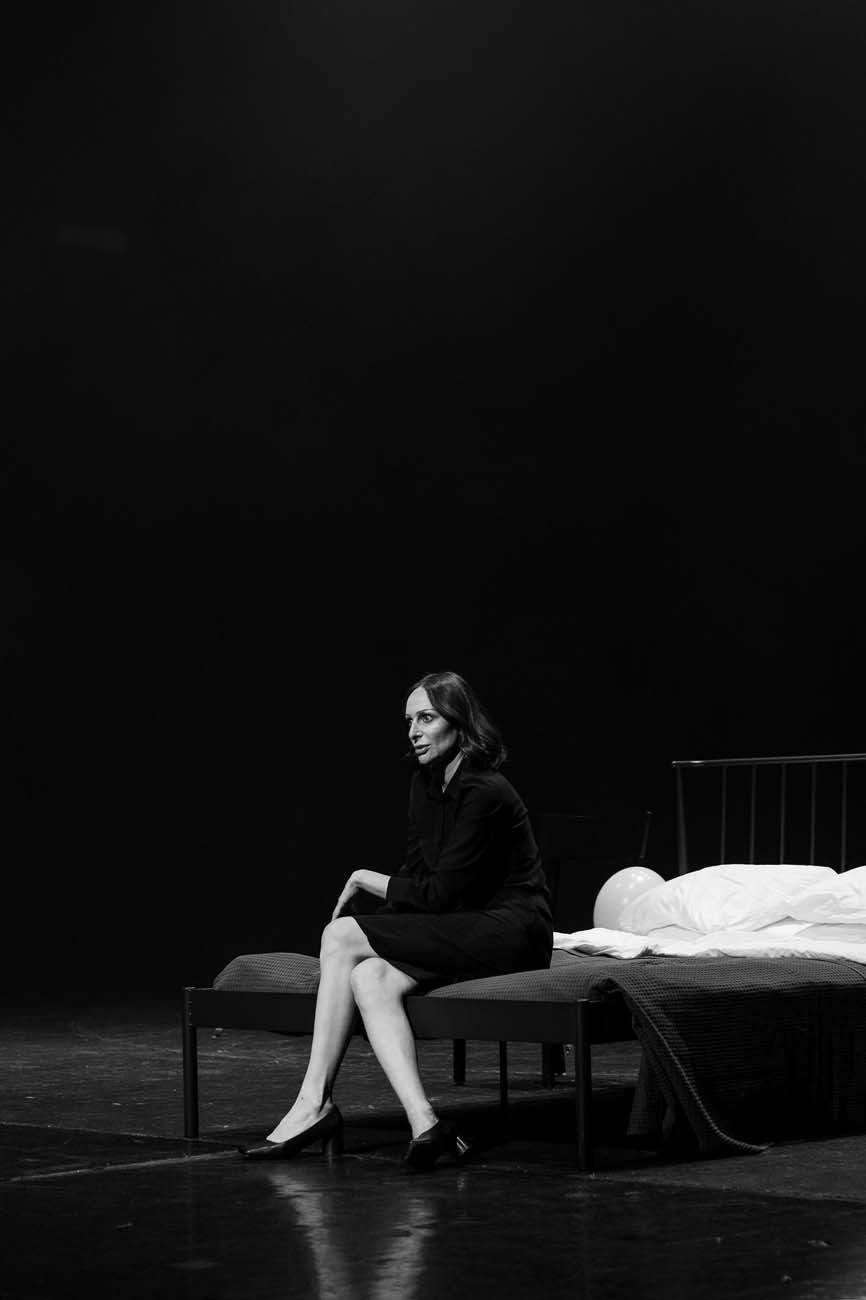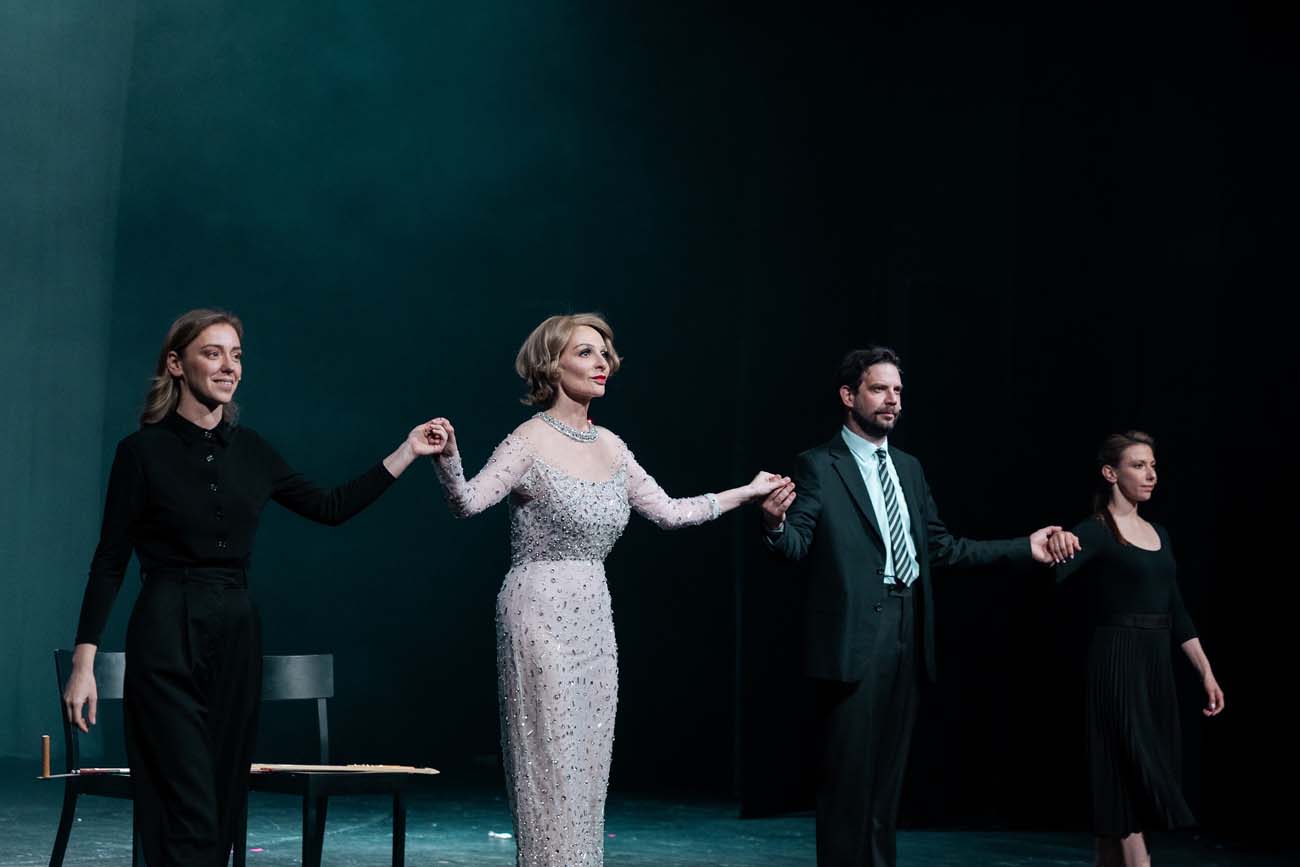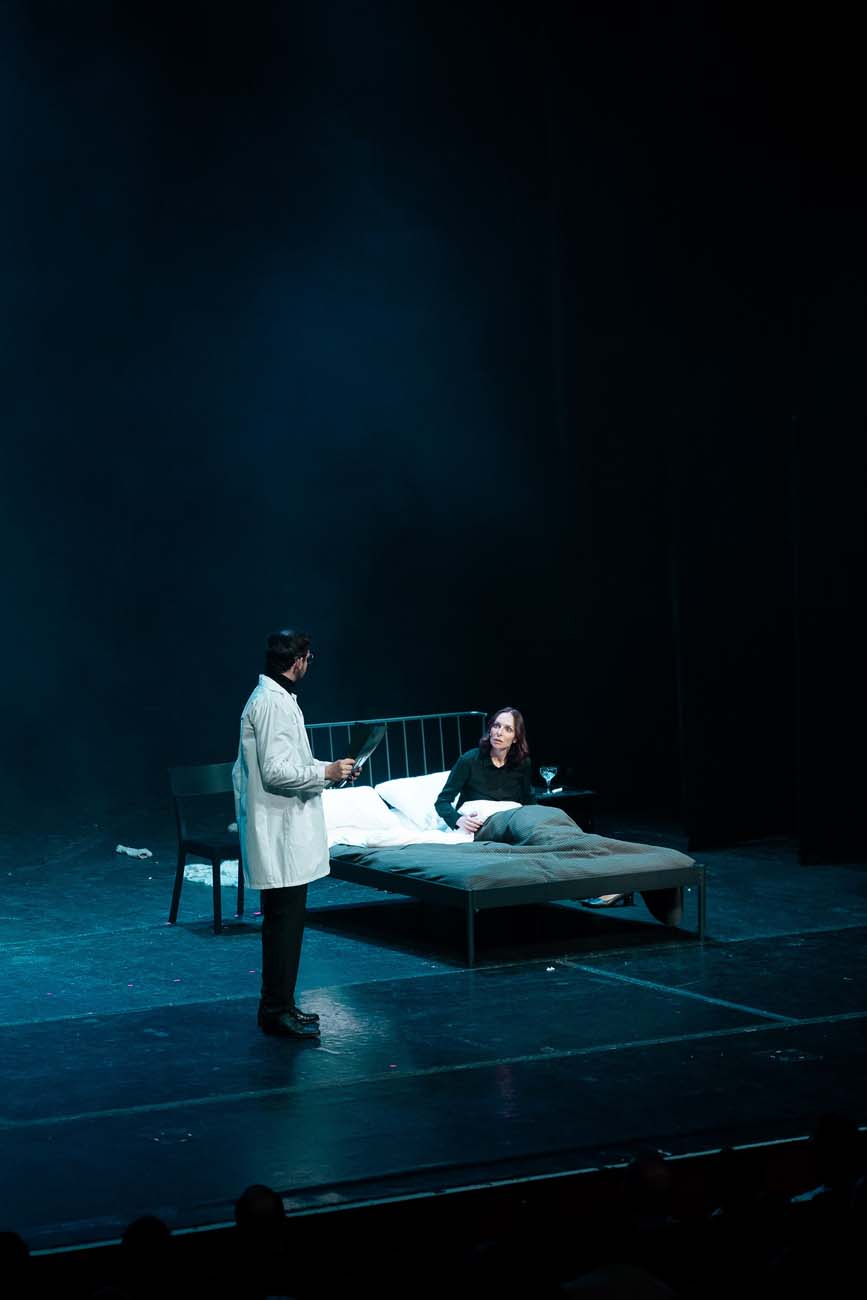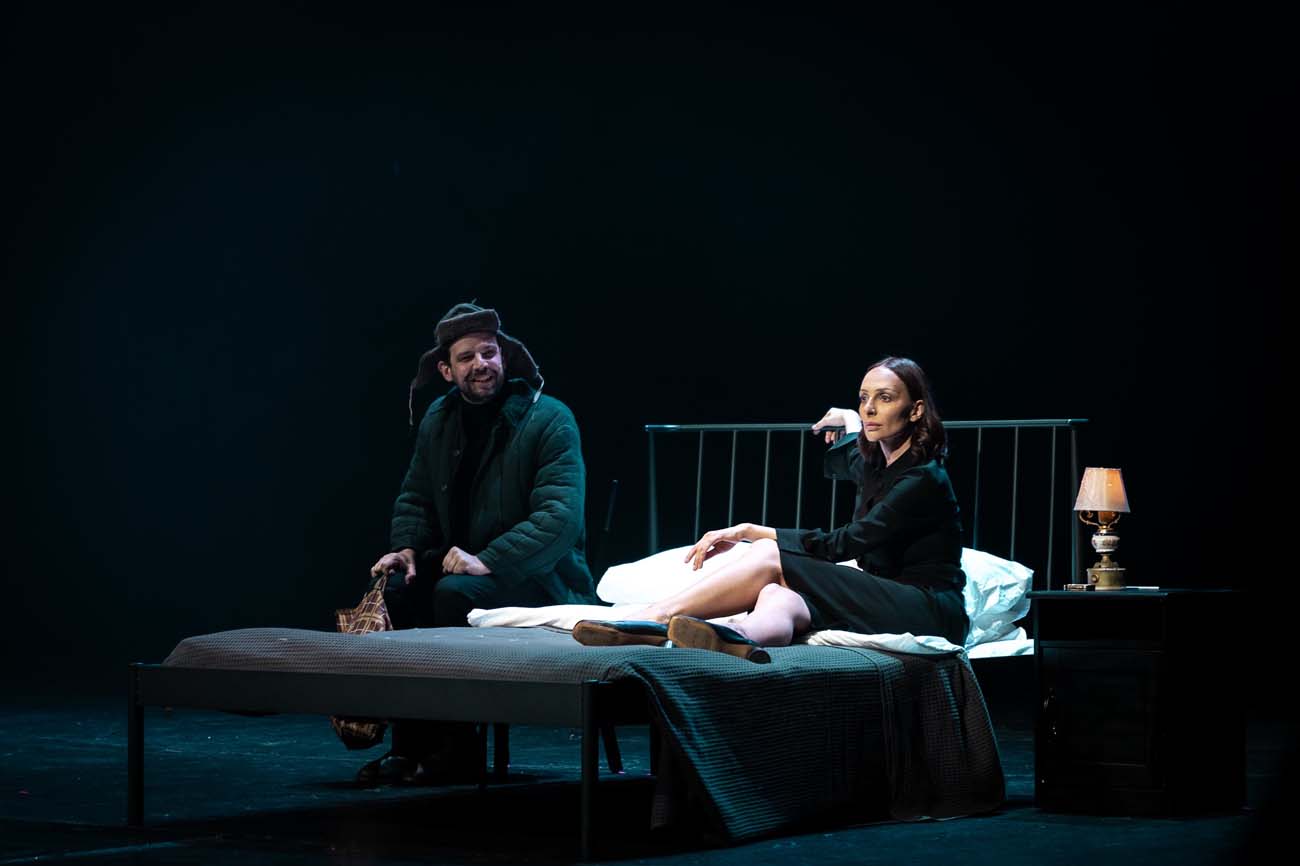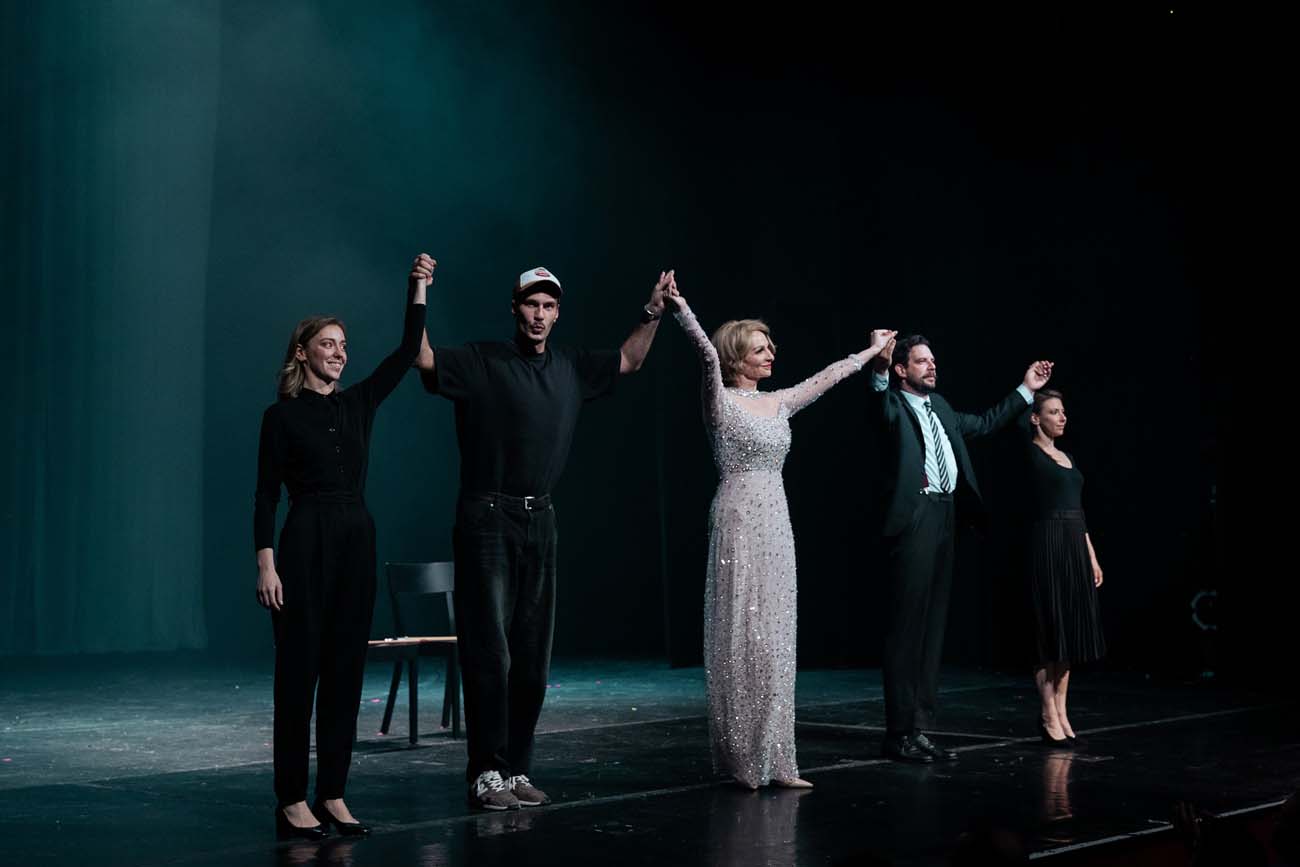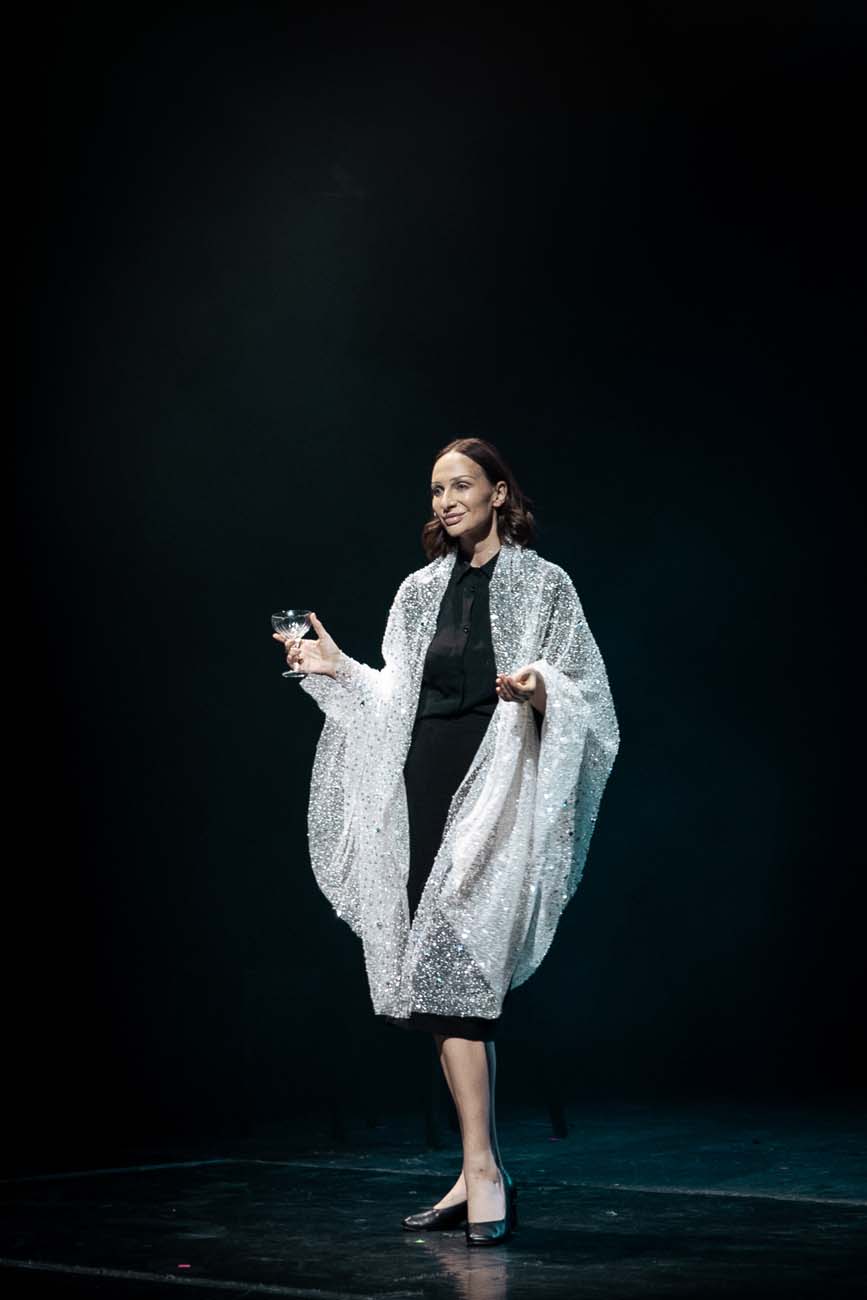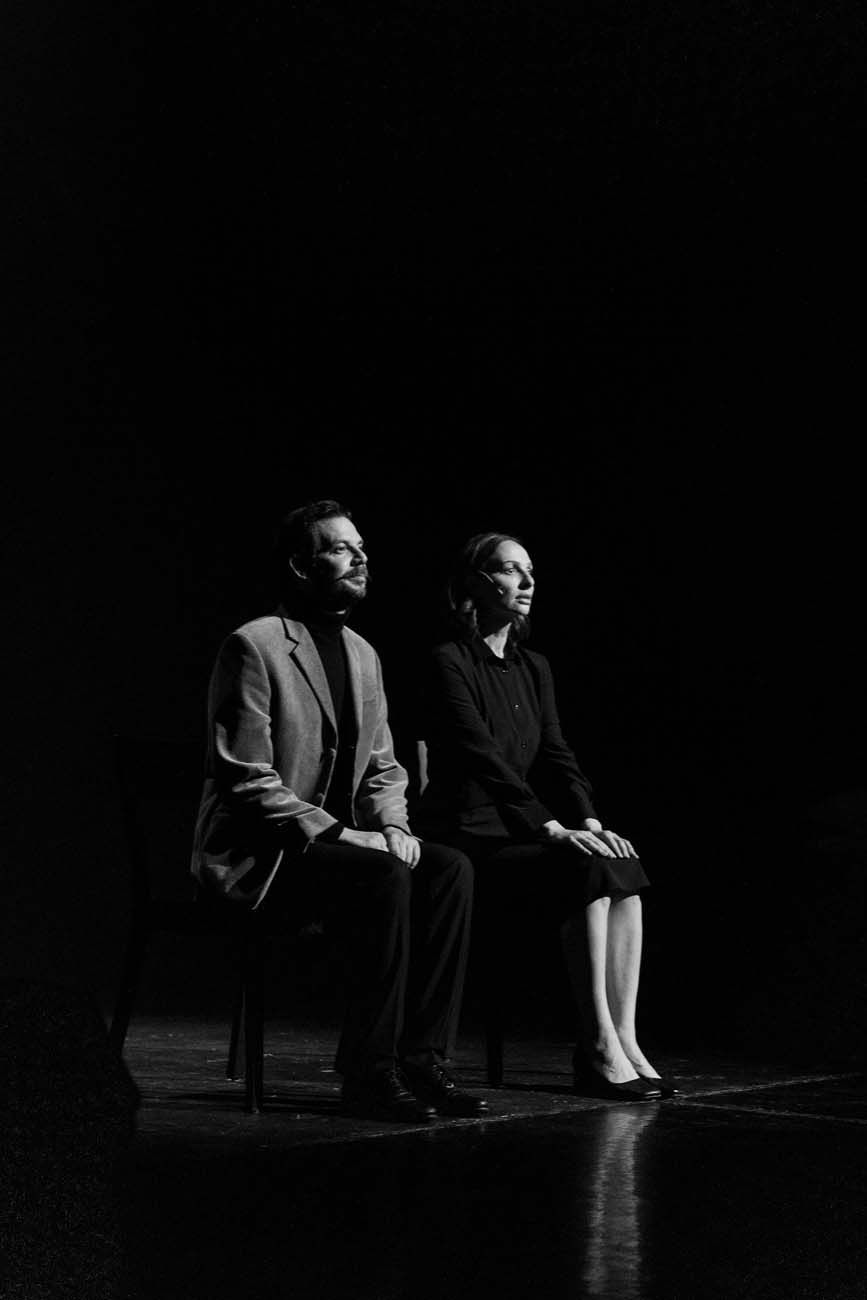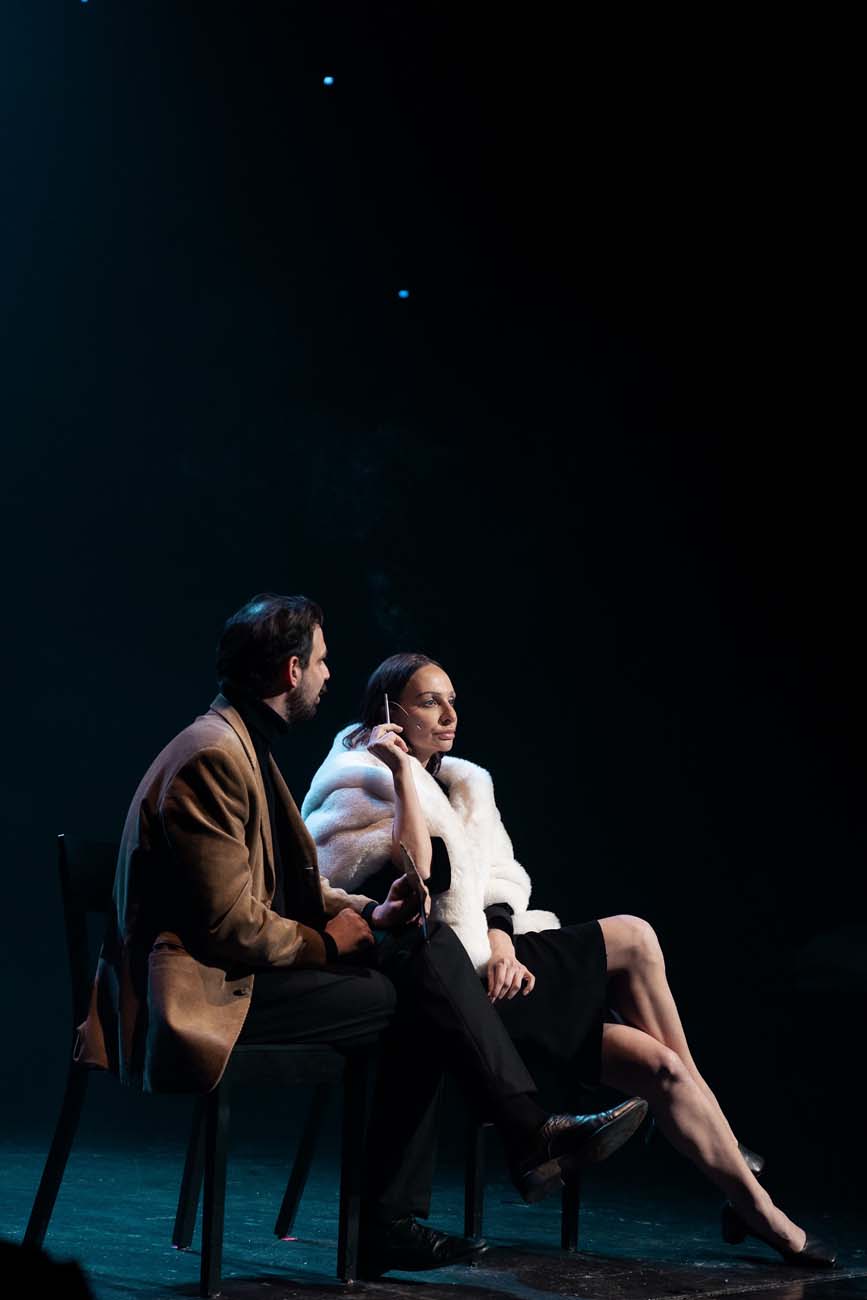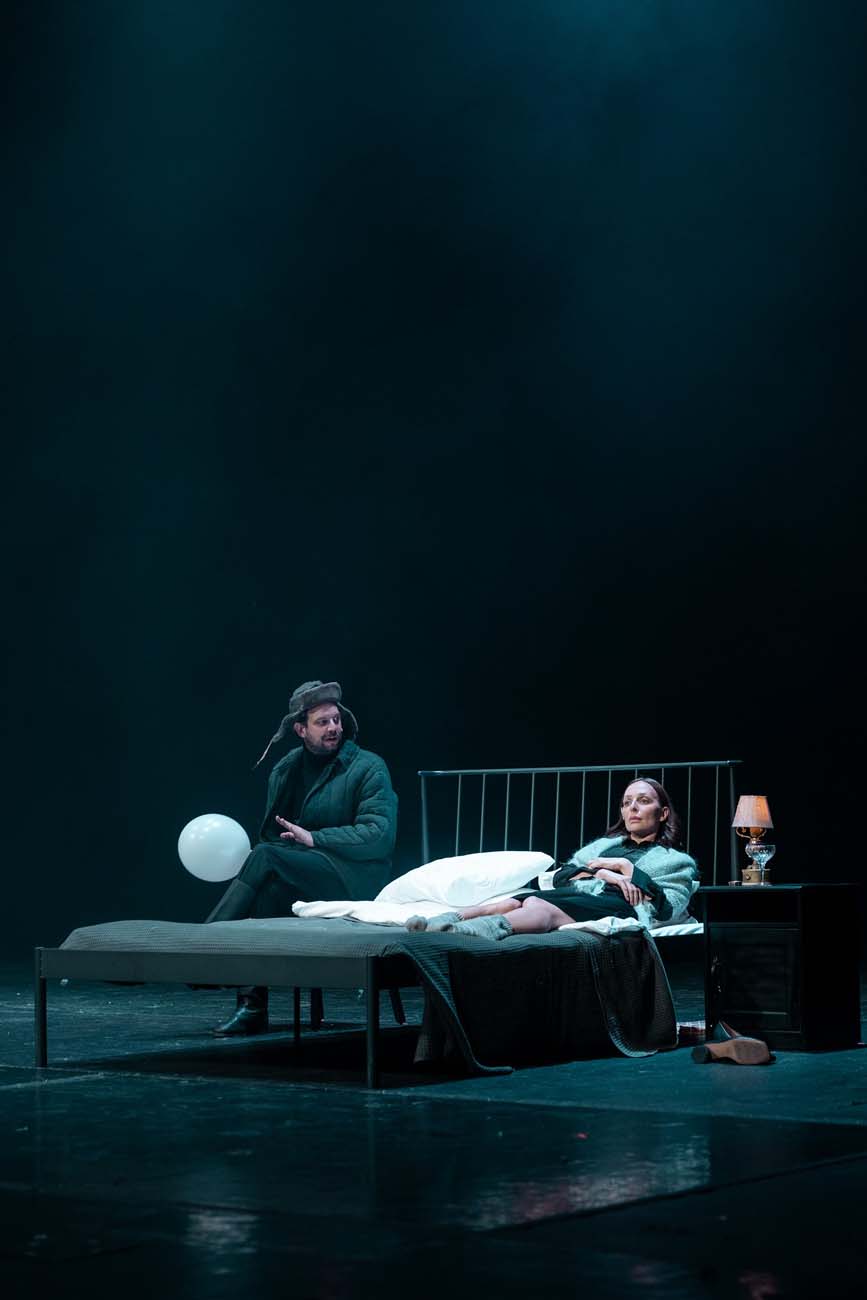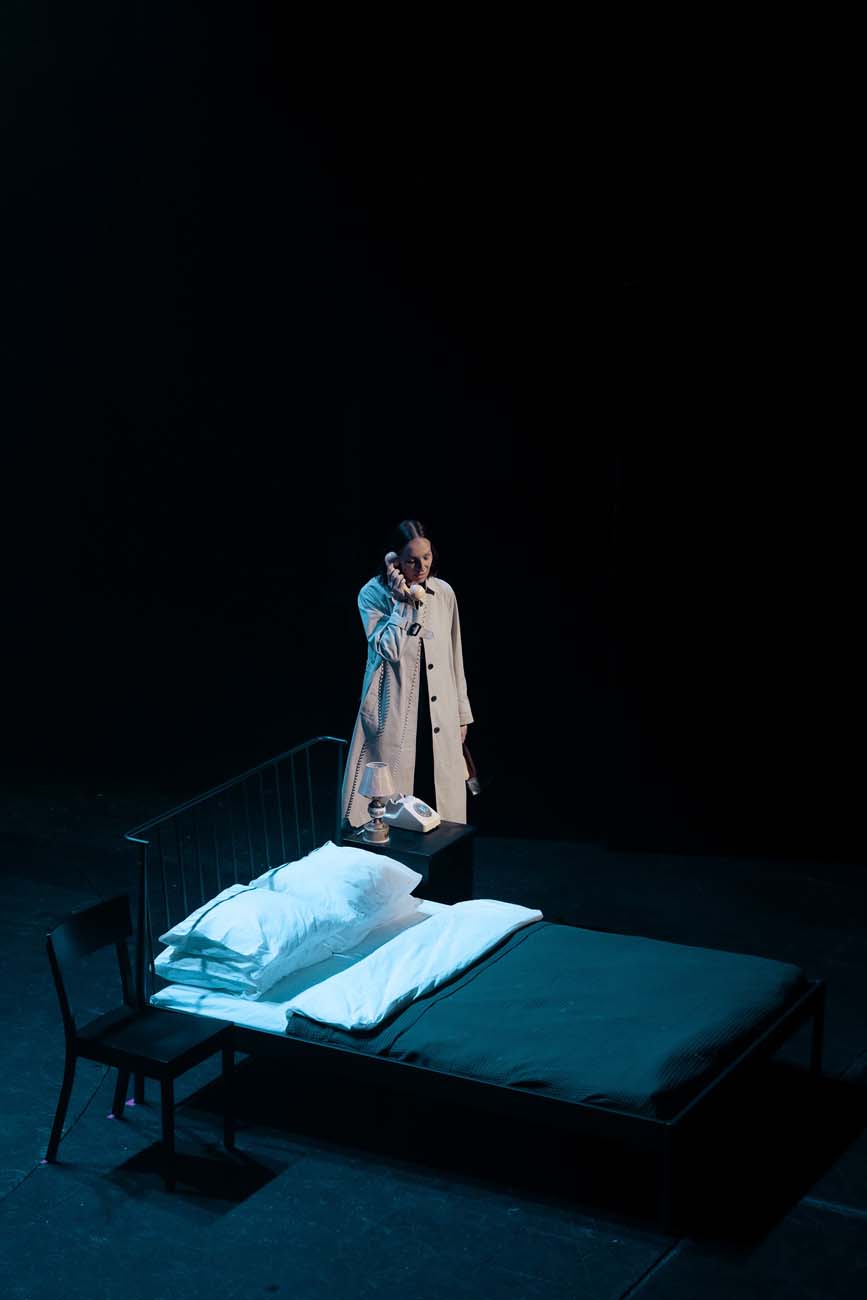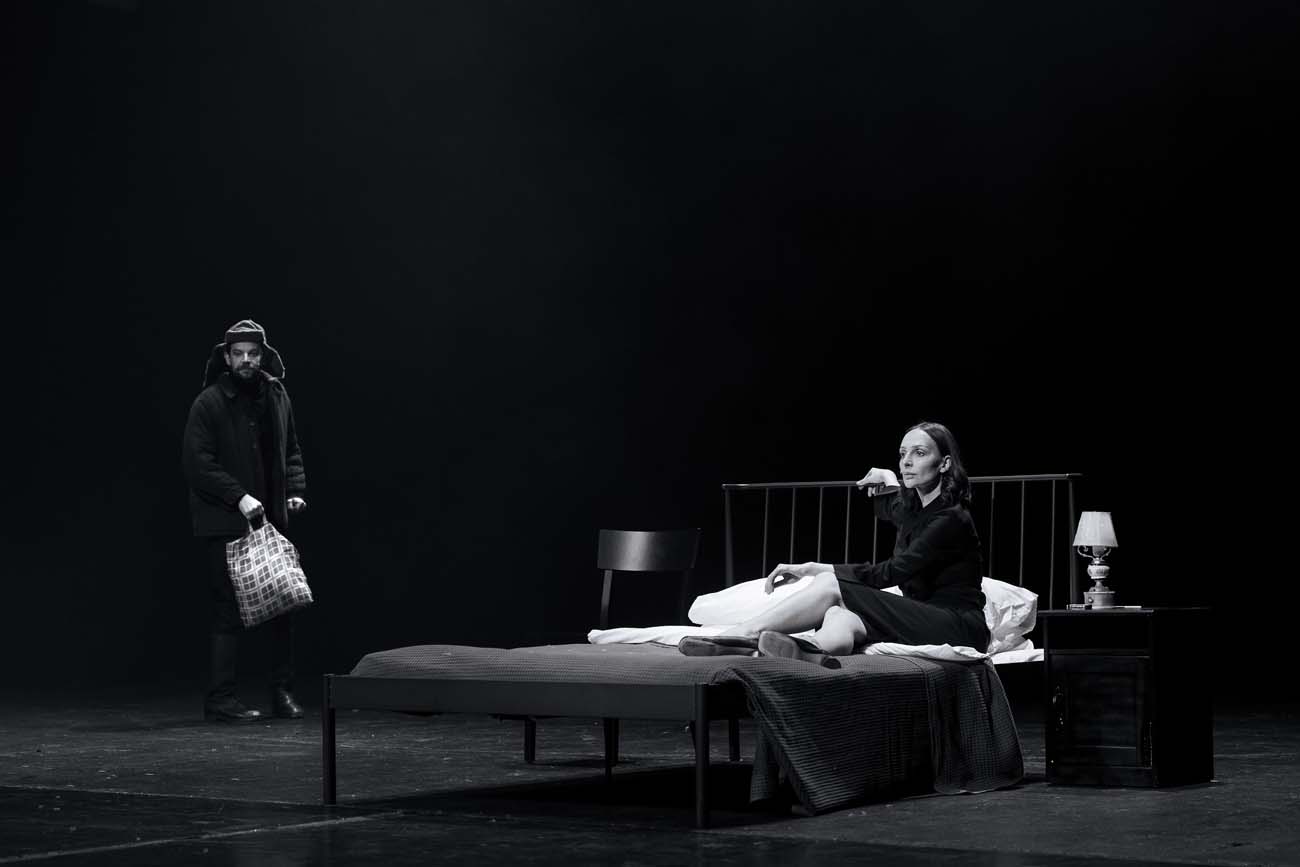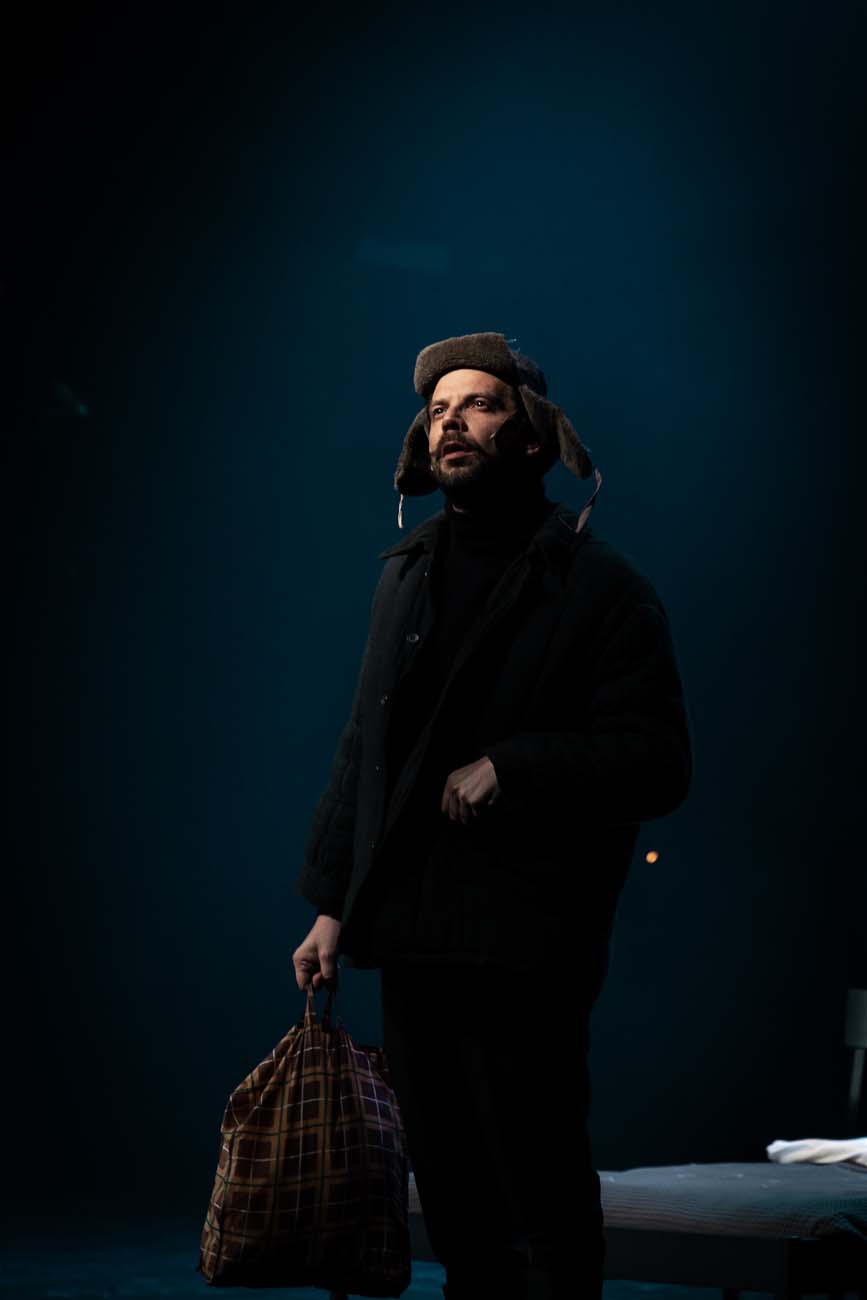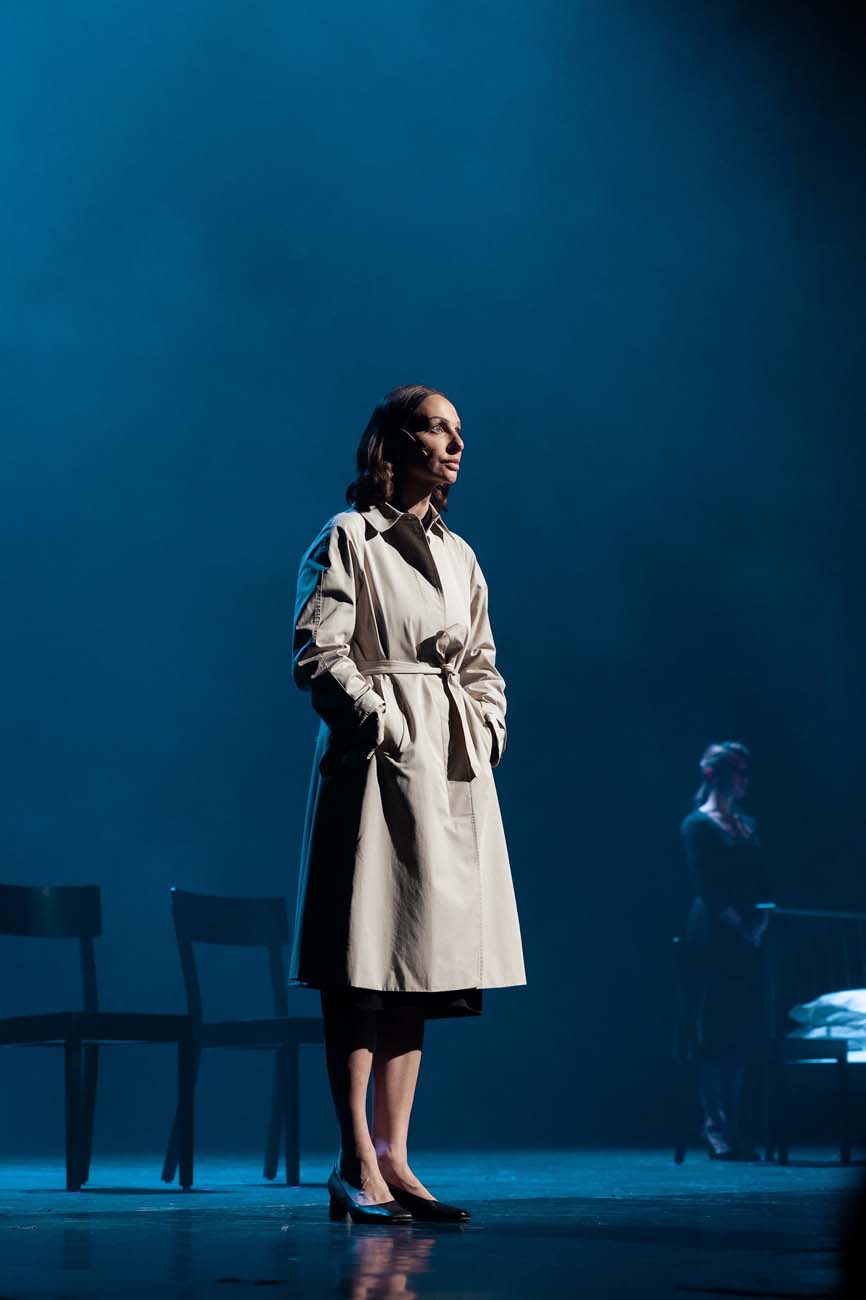About a free and fearless actress, singer, diva, and owner of an exceptional acting talent – Marlene Dietrich. The performance strikes from the first scene: the first thing the spectator sees is Marlene Dietrich kneeling. Savva Saveliev decides to begin the performance by showing a legendary photograph taken at Moscow’s Central House of the Literator in 1964, in which the actress kneels before the Soviet writer Konstantin Paustovsky. Thus, from the very beginning of the performance, the director unites two extremely parallel realities: the fate of a world-class actress and the quiet Soviet life of Katerina Petrovna, the heroine of Paustovsky’s “Telegram”. In real life, these realities united only once, and it is from this moment that the director begins his story. In Savva Savelyeva’s artistic space, however, these realities – the brilliant life of a world celebrity and the lonely old age of a Russian woman – are inseparable.
A seemingly impossible acting task – an oxymoron of theatrical archetypes. But the actors of I Am Marlene brilliantly cope with Savelyev’s challenge. Ekaterina Varnava, Semyon Steinberg and Maria Kurdenyevich have obviously done a tremendous job: every movement, gesture and step is calibrated. The very beginning is particularly impressive – the dazzling spotlight is directed at Maria Kurdenievich making her bed, while Ekaterina Varnava moves in and out of the island of light, looking at and commenting on the decoration of the hotel room. Marlene is not always visible – but her stern low voice (we would like to mention the good equipment separately) fills the whole space of the theatre.
This is a story about loneliness, including the fact that Marlene Dietrich, a favourite of the world’s audiences, and Katerina Petrovna, who is dying in the village, two women paradoxically connected and so far apart, are in fact equally unhappy and lonely. In addition to the absolutely successful acting, the extent to which the actors and director worked with the archives is impressive – one can sense a deep knowledge of the story, but nevertheless there is no notorious parody. Ekaterina Varnava, in my opinion, did not seek to copy everything Marlene – she did an excellent job of building her own reading of the heroine’s character over the well-developed image of Dietrich.
This production is a definite recommendation for viewing, and it is a great good fortune that it is being shown extensively outside Russia.
